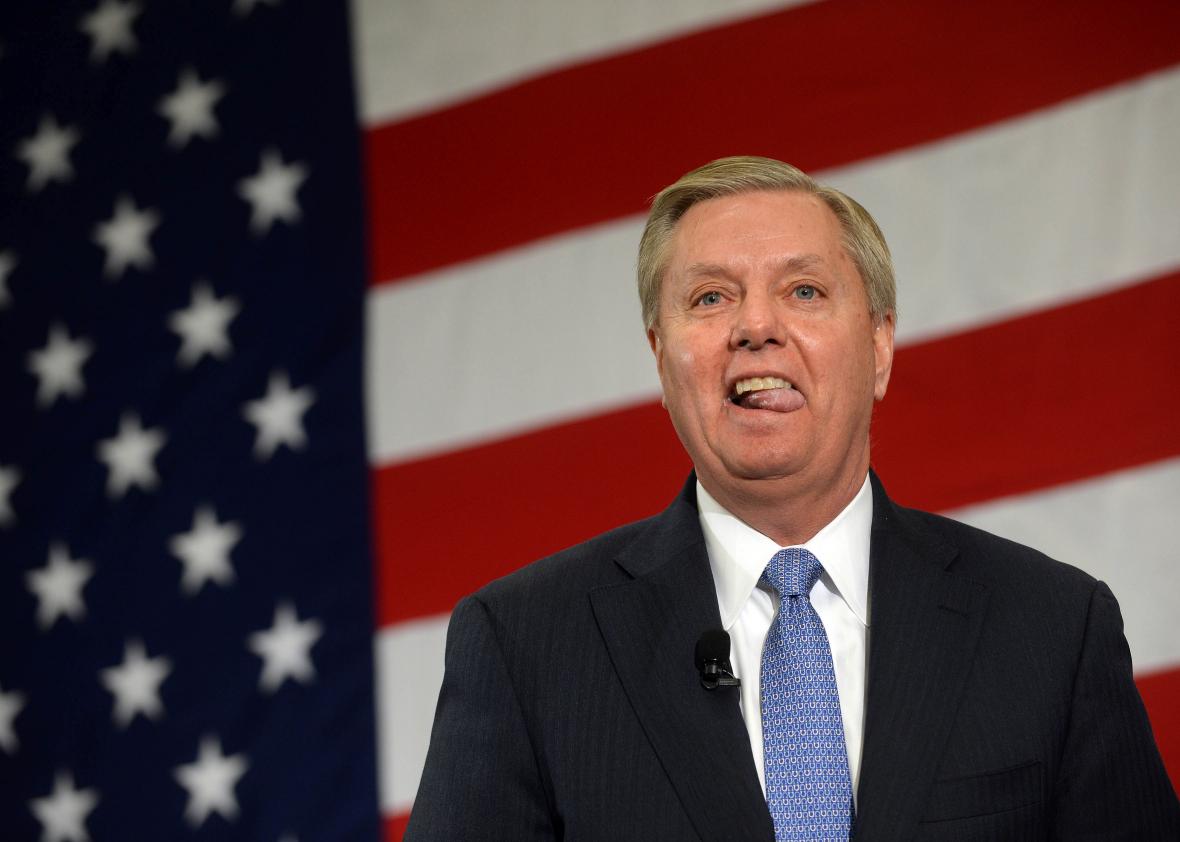
RAWA Language Seeking to Ban Online Gambling Slipped into Senate Appropriations Bill

Senator Lindsey Graham is back at it once again, the South Carolina congressman and members of the Senate Appropriations Committee taking a page out of the RAWA rulebook for its new funding bill. (Image: Darren McCollester/Getty Images)
RAWA, the Restoration of America’s Wire Act, has been shuffling around the halls of Congress for more than two years, but the anti-online gambling and poker legislation has found little patronage or support during its loiter.
First introduced into the US Senate and House of Representatives by Sen. Lindsey Graham (R-South Carolina) and Rep. Jason Chaffetz (R-Utah) in March of 2014, RAWA seeks to restore the Wire Act and effectively take away a state’s right to offer Internet gambling.
RAWA isn’t officially dead, but by all means it appears to be shelved in its original form. That’s why some were surprised to see language in a new Senate Appropriations Committee spending bill feature certain aspects of RAWA.
Sneaky Does It
Late last month, the Senate Appropriations Committee approved a massive 141-page $65 billion spending bill that provides funding for the Department of Justice (DOJ), Department of Commerce (DOC), numerous science agencies, and several other related governmental departments.
Tucked away on page 59 is the following:
“Internet Gambling: Since 1961, the Wire Act has prohibited nearly all forms of gambling over interstate wires, including the Internet. However, beginning in 2011, certain States began to permit Internet gambling. The Committee notes that the Wire Act did not change in 2011.”
In 2011, the DOJ released an opinion that the Wire Act, first passed in 1961, applied only to sports betting and not general gambling on the Internet.
The Appropriations Committee goes on to cite a US Supreme Court ruling that “criminal laws are for courts, not for the Government, to construe.” Should the legislation be passed as currently written, it could provide ammo for proponents against iPoker.
No Tel-E-Graham
It’s quite probable that Graham, who serves on the Senate Appropriations Committee, was the leading supporter of including such language into the multibillion-dollar package.
Sen. Dianne Feinstein (D-California) also serves on the committee and co-sponsored Graham’s latest RAWA version. In addition, she wrote a scathing letter recently to her state legislature opposing online poker.
But it’s Graham that still likely made the biggest push for anti-online gaming wordage. The failed 2016 Republican Party candidate for president has long been aligned with Las Vegas Sands billionaire Sheldon Adelson, the most outspoken and richest adversary of iGambling who has campaigned to restore the Wire Act.
It’s not the first time Graham has tried to push RAWA in a somewhat dubious manner.
Graham reintroduced RAWA to the Senate on June 24, 2015. That was the day before the Charleston, South Carolina, community gathered at the Emanuel AME Church to bury some of the dead from the horrific church shootings a week earlier.
Poker Players Alliance (PPA) Executive Director John Pappas said at the time, “I think I speak for most Americans when I express profound disappointment in Senator Graham for choosing, this time, to advance a bill for the sole benefit of a billionaire political donor.”
Congress had made the decision to adjourn early that week so certain members could travel from Washington, DC, to the memorial services. Graham opted to use that time to bring RAWA back.
The Appropriations Committee bill has been placed on the Senate Legislative Calendar for additional consideration, though no specific date has been announced.















0 Comments